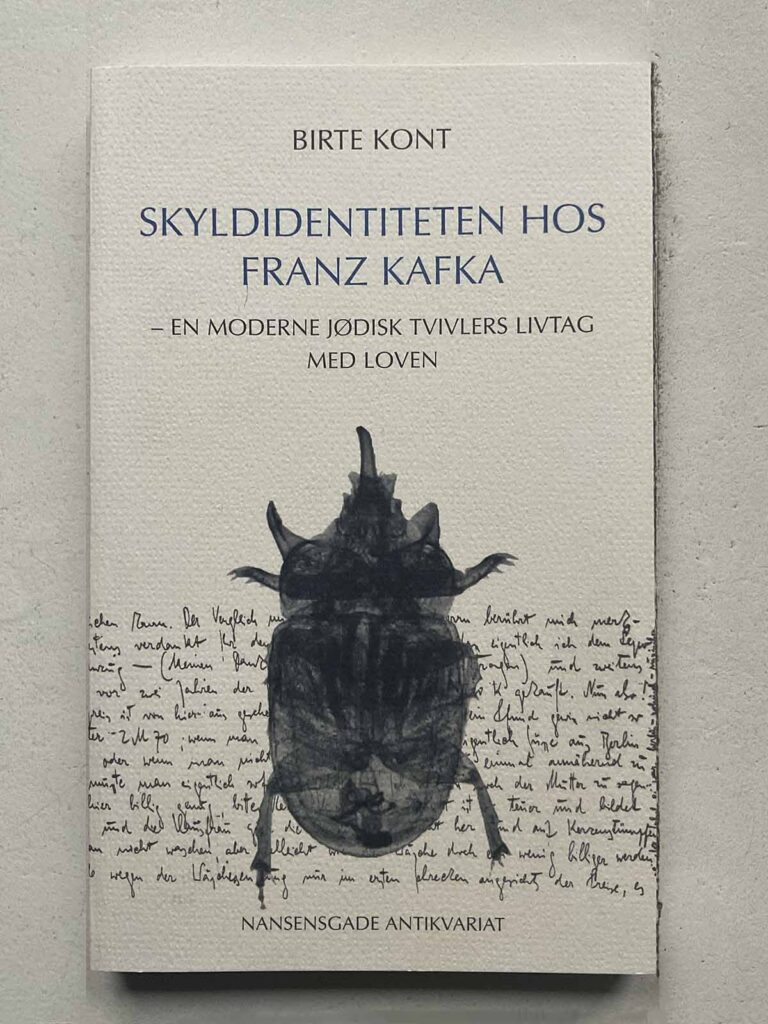
As the title would suggest, the book revolves around Kafka’s guilt identity, the basis of which derives from the well-known disparity that existed in his relations with his family and his lifelong attempt at opposing the Law of the Father and his sense of guilt. As a result, an underlying, specifically Jewish conflict regarding the question of values is unearthed, a conflict that is based on the Law of Moses, and that is played out between the materialistic, assimilated Judaism of the father and the son’s more spiritually-oriented interest in Judaism. An epilogue by Bent Melchior illuminates some of the central aspects regarding this conflict in values.
The book deals with the notion of guilt in psychological terms pertaining to the individual and in terms of a collective, religious, specifically Jewish-historical context.
Moreover, this includes Kafka’s own search for his Jewish identity, which occurs through his encounter with his father’s Judaism, Jewish studies, his acquisition of the Hebrew language and fascination with Eastern European Hasidism.
The book is intended for readers who are interested in Kafka and for anyone generally interested in Jewish philosophy.
Kafka’s Guilt Identity: A Modern Jewish Skeptic Wrestles with the Law was published by Nansensgade Antikvariat in May, 2000.
Reviews
A Find for Kafka Lovers.
Relevant and inspiring from the first page to the last. Modern day readers will find a thorough depiction of what spiritual seeking really is. There is no doubt about it, this book is a must for Kafka lovers.
*****METTE DALSGAARD, BERLINGSKE TIDENDE
Kafka’s Jewish Resonance
With [Birte Kont’s] unique take on and illustration of Kafka’s guilt complex it becomes more apparent why writing was a form of prayer for Kafka and why, early on, one of his criteria for determining whether a book was quality literature was that it had to be ”an ax for the frozen sea within us. I thank [Birte Kont] for providing us with that.
STIG DALAGER, UDSYN
By shedding new light upon the subject, Kont’s new book is now considered a new major work within Danish Kafka studies. The book is a must for those who want to get to the heart of Kafka’s universe.
TORBEN WENDELBOE, Danish Bibliographic Center